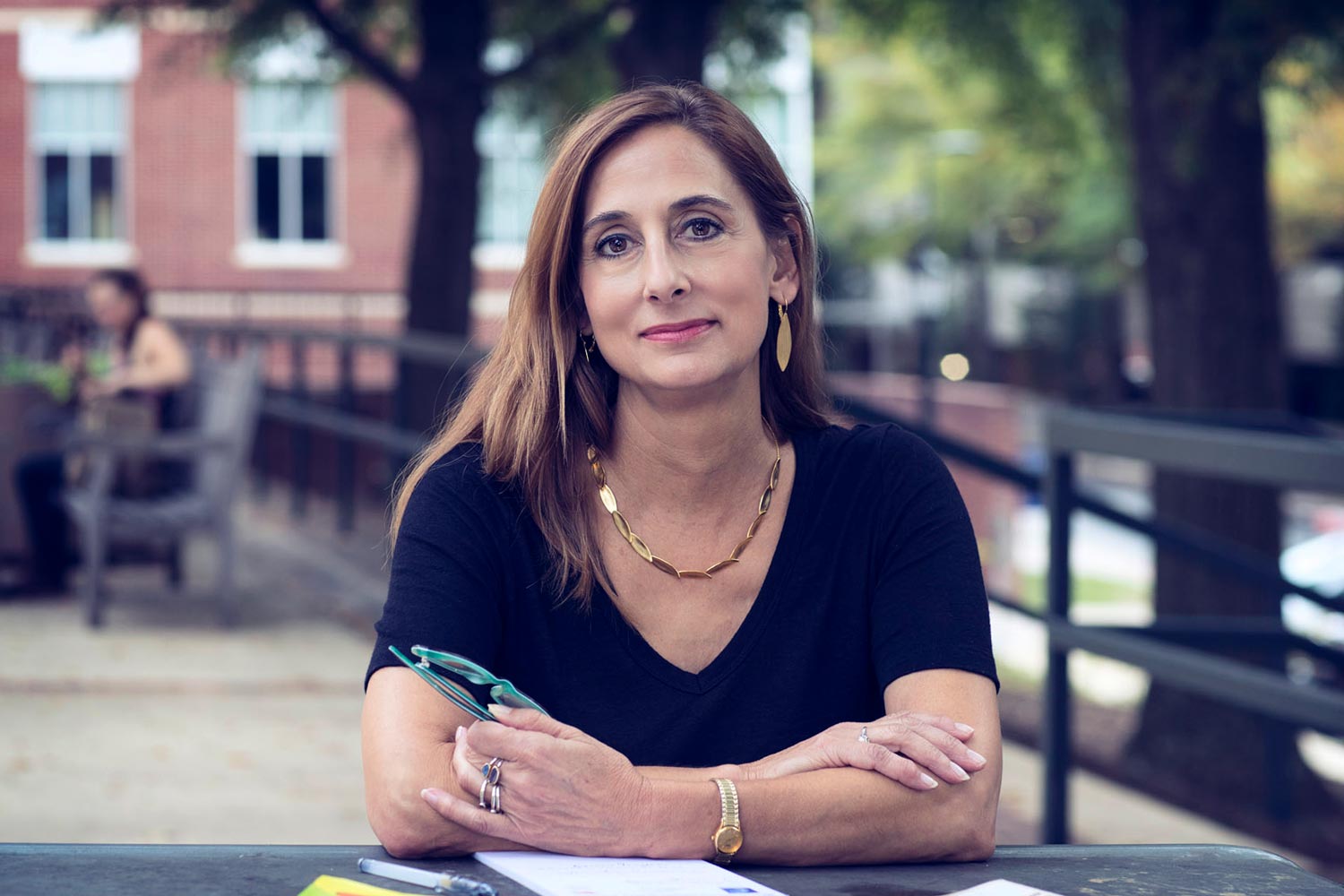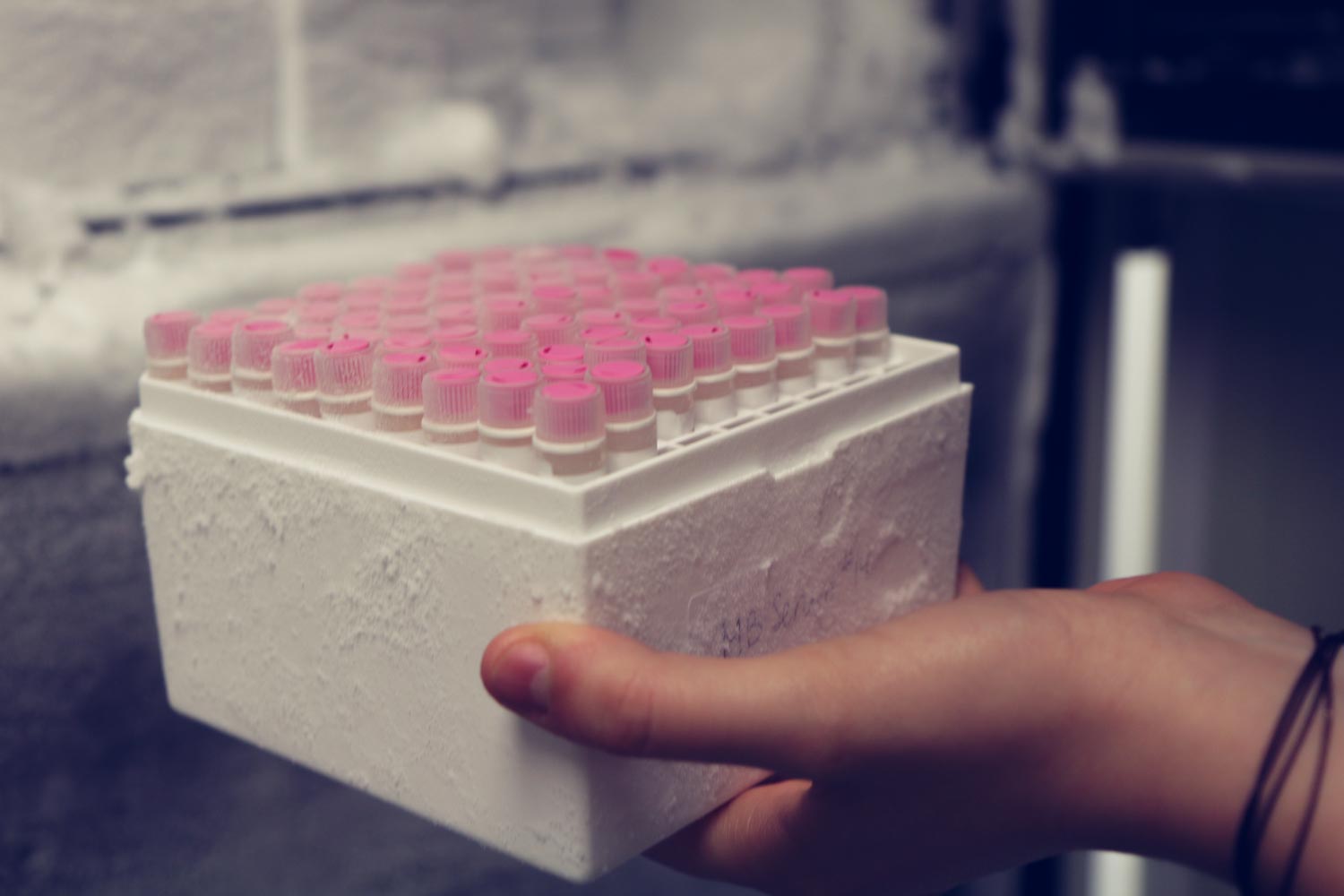Imagine it: an ordinary freezer – not unlike the one in your basement or garage – with hundreds of neatly packaged test tubes that may offer clues about the interplay between a pregnant woman’s biology and her baby, and a very real chance to improve the mental and physical health outcomes of both.
That’s the promise of ONOS – the Obstetric and Neonatal Outcomes Study cohort, a repository of serum, umbilical cord blood, stool and placental tissue samples from local pregnant women. While now they are stored safely in the UVA Medical Center, the samples will provide a jumping-off point for scholars, enabling them to ask and answer health questions related to diet and pregnancy, the presence or absence of certain intestinal bacteria, and how it all impacts developing babies.
“The data are extremely rich,” says Anna Maria Siega-Riz, associate dean for research in the University of Virginia School of Nursing, who with UVA obstetrics chief Donald Dudley is assembling the biological repository. “And while it’s fodder for scholarly papers, these specimens also offer endless suggestions for preliminary areas of exploration. The opportunities here – for nurses, physicians, Ph.D. students – are incredible.”

Anna Maria Siega-Riz, associate dean for research in the School of Nursing, created ONOS, the Obstetric and Neonatal Outcomes Study. (Photo by Dan Addison, University Communications)
Siega-Riz herself is no stranger to big data. The nutrition and maternal-child health scholar is currently part of a $2.5 million National Institutes of Health grant examining diet-related outcomes and pregnancy, and also part of the NIH-funded Hispanic Community Health Study of Latinos that’s tracking health information on more than 16,400 Latinos. After her arrival at UVA in 2015, she and a School of Medicine team began assembling the ONOS cohort by asking pregnant women receiving treatment at UVA to contribute specimens to the new repository, kept under lock and key in the bowels of UVA Medical Center.
The women have been happy to help. Specimens from more than 200 individuals lay waiting in tidy, labelled test tubes for a researcher to come and unlock their secrets.
Someone like Caitlin Dreisbach.
Dreisbach, a long-time labor and delivery nurse and a Ph.D. student concurrently earning a master’s in data science, and UVA psychology student Caroline Kelsey will be the first scholars to mine the samples’ riches. The duo earned a Presidential Fellowship (funded by UVA’s Data Science Institute) and plan to investigate how mothers’ microbiomes – the flora in the gut not unique to our bodies – may predict emotional connectivity and responsiveness to their babies.
This month, Dreisbach and Kelsey will begin recruiting ONOS participants for their follow-up study, and later this fall will begin work to sequence the specific strains of bacteria in those samples. Ultimately, they plan to enroll 100 mothers and babies, study their diets, get stool and blood samples at regular intervals to assess their microbiomes and conduct a variety of psychological tests related to mental health, stress and anxiety.
“We know that babies are best understood in the context of the way they’re nurtured and raised,” Dreisbach said, “and that it’s likely that the microbiome may not only influence moms’ mental health, but babies’ neurological growth, too. The questions I’m interested in are directly related to challenges I see women go through during delivery, and afterward. It’s really grounding work.”
It’s also providing an academic foothold for Dreisbach, who ultimately hopes to be a nurse-scientist and academic.
“I don’t think I’d be doing this anywhere else,” Dreisbach said, “because nowhere else do they offer the support to combine things the way I have. We have a Data Science Institute that firmly believes that nurses need to be part of the conversation, and a nursing school that thinks that I can, and should, be doing real work like this.
“There are so many potential research papers here, so many collaborations to be made, not only in infant development and maternal health, but also in pregnancy, nutrition and the microbiome as a whole,” she adds. “That’s been the biggest gift.”
Media Contact
Article Information
January 10, 2018
/content/secrets-under-ice

